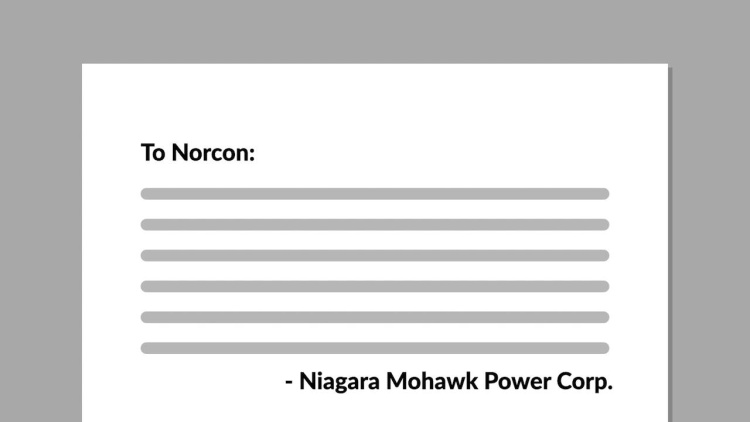Norcon Power Partners, L.P. v. Niagara Mohawk Power Corp.
New York Court of Appeals
92 N.Y.2d 458, 705 N.E.2d 656, 682 N.Y.S.2d 664 (1998)
- Written by Matt Fyock, JD
Facts
Norcon Power Partners, L.P. (Norcon) (plaintiff), an independent power producer, entered into a 25-year supply contract with Niagara Mohawk Power Corp. (Niagara) (defendant), a public utility company. In 1994, Niagara sent Norcon a letter stating that it expected credits in Niagara's favor to exceed $610 million in the next payment period. Niagara anticipated Norcon would not be able satisfy the credits and demanded assurances that Norcon would perform. Norcon sued Niagara, seeking a declaration that Niagara had no contractual right to demand assurance and a permanent injunction to stop Niagara from anticipatorily terminating the contract. The district court granted Norcon’s motion for summary judgment on the grounds that adequate assurances could be demanded only when a party is insolvent or the contract involves the sale of goods under the Uniform Commercial Code (UCC). Niagara appealed to the United States Court of Appeals for the Second Circuit, which certified the question to the Court of Appeals of New York regarding whether a party has a right under state substantive law to demand adequate assurances if the other party is solvent and the UCC does not control the contract.
Rule of Law
Issue
Holding and Reasoning (Bellacosa, J.)
What to do next…
Here's why 907,000 law students have relied on our case briefs:
- Written by law professors and practitioners, not other law students. 47,100 briefs, keyed to 996 casebooks. Top-notch customer support.
- The right amount of information, includes the facts, issues, rule of law, holding and reasoning, and any concurrences and dissents.
- Access in your classes, works on your mobile and tablet. Massive library of related video lessons and high quality multiple-choice questions.
- Easy to use, uniform format for every case brief. Written in plain English, not in legalese. Our briefs summarize and simplify; they don’t just repeat the court’s language.





